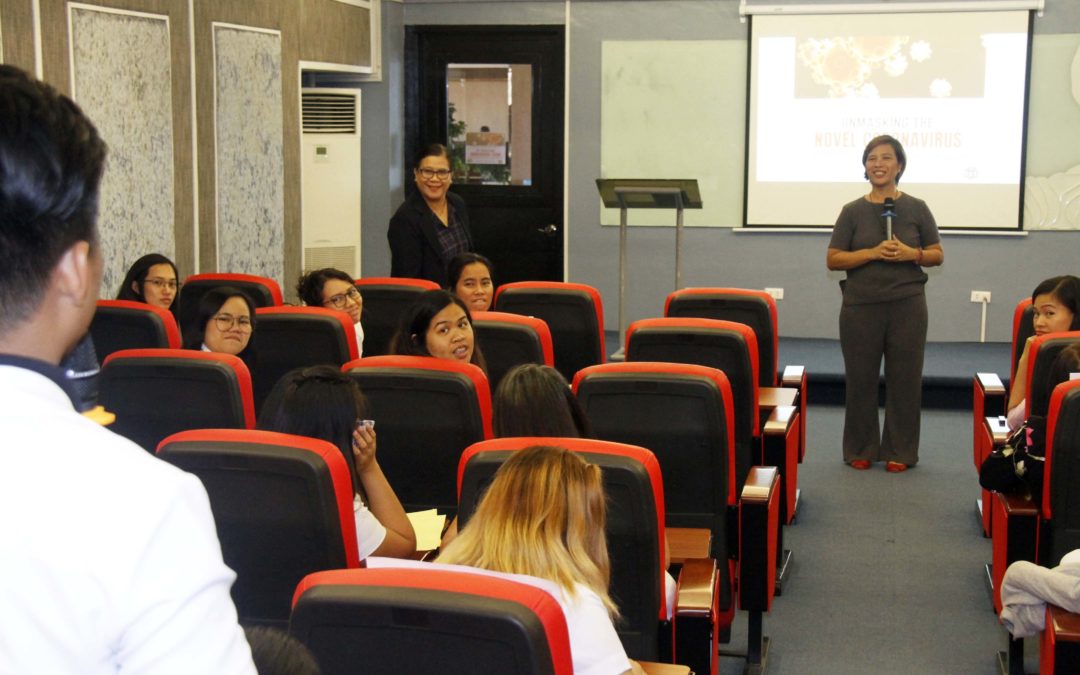With the growing public concern on the worldwide spread of the Novel Corona Virus (2019-
nCoV), it is easy to get swept into the frenzy of misinformation on this global health emergency.
The Jose Maria College of Medicine Foundation believes it is very important for medical
students – the future front liners in health care – and non-medical personnel and students as
well, to understand the vital role of proper education and awareness on issues of medical
concern.
Last January 29, 2020, the school commenced its Awareness and Prevention Drive on 2019-
nCoV with a very informative talk by Dr. Cleofe Tabada, Head of the Regional Epidemiology and
Surveillance Unit of the Department of Health Region XI.
Dr. Tabada began by giving a report on what the DOH currently knows about the virus: the
origins, the numbers, the symptoms. However, she also admitted that there are many
important things that are yet to be unveiled, including how the virus is transmitted, how fast
symptoms begin to manifest, and how severe or fatal the infection can be. She then urges the
public to refrain from causing more panic and keep themselves updated only with information
verified from credible sources, such as the World Health Organization, the Department of
Health, and the Centers for Disease Control and Prevention.
Dr. Tabada also sought the people’s cooperation in promoting practices that can help control
the spread of the virus. Wearing of surgical masks is a helpful protective measure, especially for
health care workers, individuals who are in close contact with symptomatic patients, those with
existing illnesses, or those whose immunity may be compromised. This, however, is not
necessary for the general population who are in good health. Proper hygiene, particularly
frequent handwashing and cough etiquette, along with adequate rest and nutrition, are still
paramount, in the efforts of reducing the risk of contracting or passing the disease.
The main takeaway from Dr. Tabada’s talk would definitely be the need for everyone’s
concerted efforts to practice due diligence and prudence when disseminating information on or
off social media. Technology and social media have made each one of us capable of
contributing to the expanding knowledge about 2019-nCoV. The challenge, now, is to avoid
adding up to the heightening panic, and instead, take part in everyone’s proper education and
awareness.
For information and updates on 2019-nCoV, check the following websites:
World Health Organization: https://www.who.int/emergencies/diseases/novel-coronavirus-2019
Department of Health (Philippines): https://www.doh.gov.ph/2019-nCoV
Centers for Disease Control and Prevention: https://www.cdc.gov/coronavirus/2019-
ncov/index.html


Recent Comments